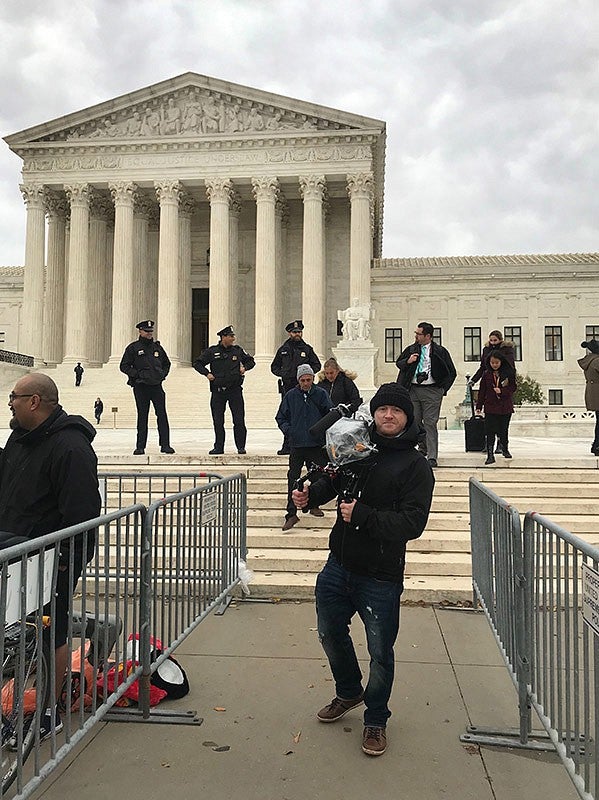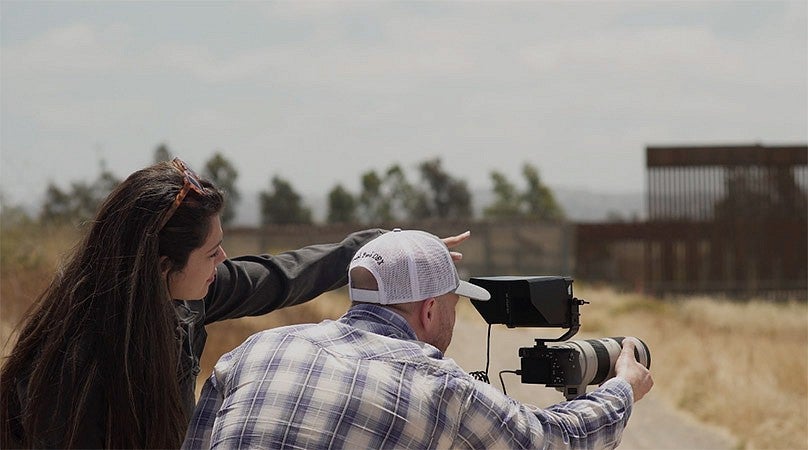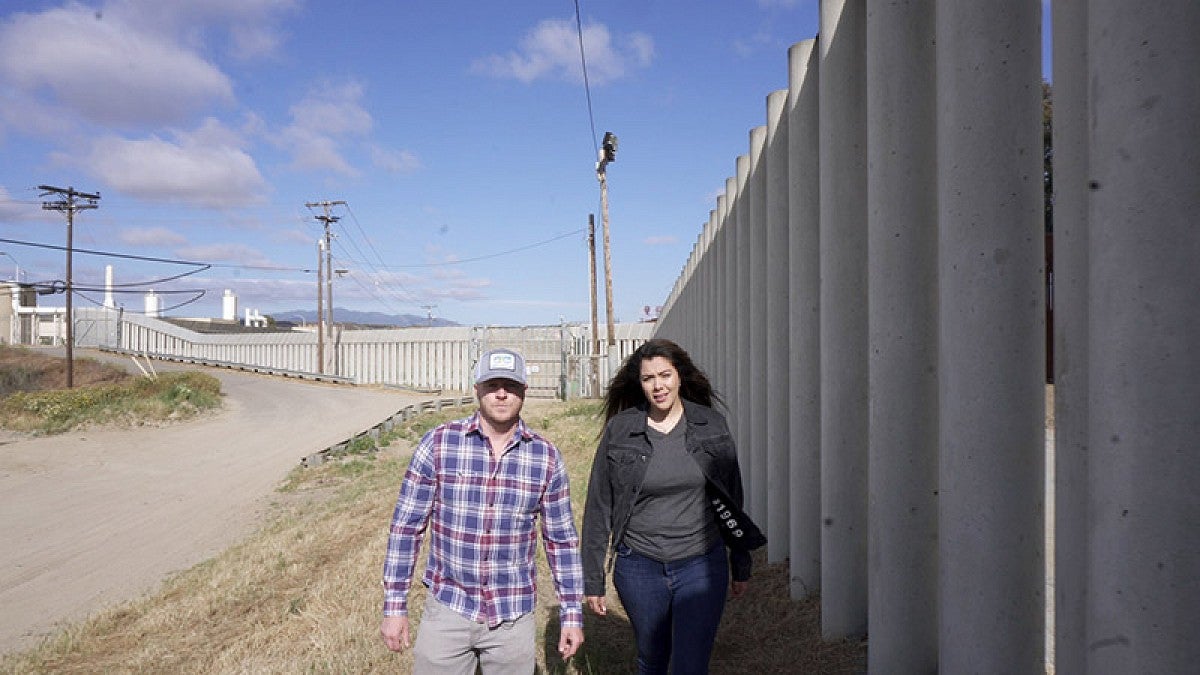In 2012, US Border Patrol Agent Lonnie Swartz shot 16-year-old José Antonio Rodríguez through the steel slats of a border fence separating Arizona and Sonora, Mexico, killing him. Swartz shot Rodríguez 10 times in the back, over 34 seconds.

“In the last 10 years, the border patrol has killed at least 53 people, mostly by shooting,” says alumnus Adam Markle, a cinematographer and documentary filmmaker in Los Angeles. “No one has told this story.”
Until now. Thanks to a successful Kickstarter fundraising campaign, Markle, BA ’03 (sociology), and Mexico City journalist Jessica Solis are editing 150 hours of footage for 34 Seconds, their feature-length documentary film on killings along the US-Mexico border. In 2018, Swartz was found not guilty of involuntary manslaughter, claiming the teen was throwing rocks and he feared for his life.
The documentary is a labor of love, says Markle. He’s not taking a salary for his work on the project, and he’s used funds from freelance cinematography gigs to support it. But making a profit isn’t the point. Although it may be one of his most personal (and controversial) productions, it’s probably not the most dangerous.

“With this career, every day is a new adventure,” he says. “One day, you’re telling stories about rescued animals. Then you’re in the Andes documenting truck drivers on some of the world’s deadliest roads.”
Markle fondly recalls his first photo shoot at age seven. He meticulously photographed some colorful power cables in the snow with his father’s old Polaroid camera.
“Dad was so impressed, he put them on the fridge,” recalls Markle. “That inspired me to keep shooting.”
He produced his first film for a sociology course taught by Professor Michael Dreiling. Dreiling told his students they could create their own class projects and decide how much the projects would impact their grades.
“I produced a documentary about migrant farm workers in Southern Oregon, and I chose to make it 80 percent of my grade,” recalls Markle. “I ended up spending 15 hours a day in the editing room—and realized I was enjoying it.”
After graduation, Markle started at the bottom and worked his way up the production crew ranks.
First, he landed an internship with a Southern Oregon film crew. That led to paid work as a production assistant in Portland. Then, he chased the dream to LA, taking on bigger projects and greater responsibilities.
His breakthrough role with a camera was in 2014 for Deadliest Catch, a Discovery Channel reality show about crab fishing in the Bering Sea—work that earned him an Emmy Award that year for cinematography.
“You’re doing audio, directing, producing, and shooting 400 miles from land with 25-foot seas and 80 mile-per-hour winds,” says Markle. “If something goes wrong, Coast Guard helicopters aren’t flying. That honed my documentary skills.”


Markle has worked on the Twilight series, the 2010 Steve Carell and Tina Fey comedy Date Night, and Wicked Tuna, a reality show about commercial fishers in Massachusetts. His clientele includes National Geographic, A&E Network, and ABC. With every project, he gravitates toward the camera crew.
“There’s always someone with more experience,” Markle says. “I was a camera assistant for a cinematographer with 40 years in the game. He told me ‘Keep your eyes open and always be ready to learn.’ I took that to heart.”
Markle watched, listened, and developed his cinematography chops on every production. Throughout the journey, he’s also drawn deeply from his UO experience.
“My sociology courses taught me to look at the world from different perspectives and ask critical questions. What I learned at the university shaped the kind of stories I wanted to tell—and how I wanted to tell them.”
—Ed Dorsch, BA ’94 (English, sociology), MA ’99 (journalism), senior associate director with University Communications
Markle and Solis plan to release 34 Seconds this fall. Visit www.34secondsmovie.com


